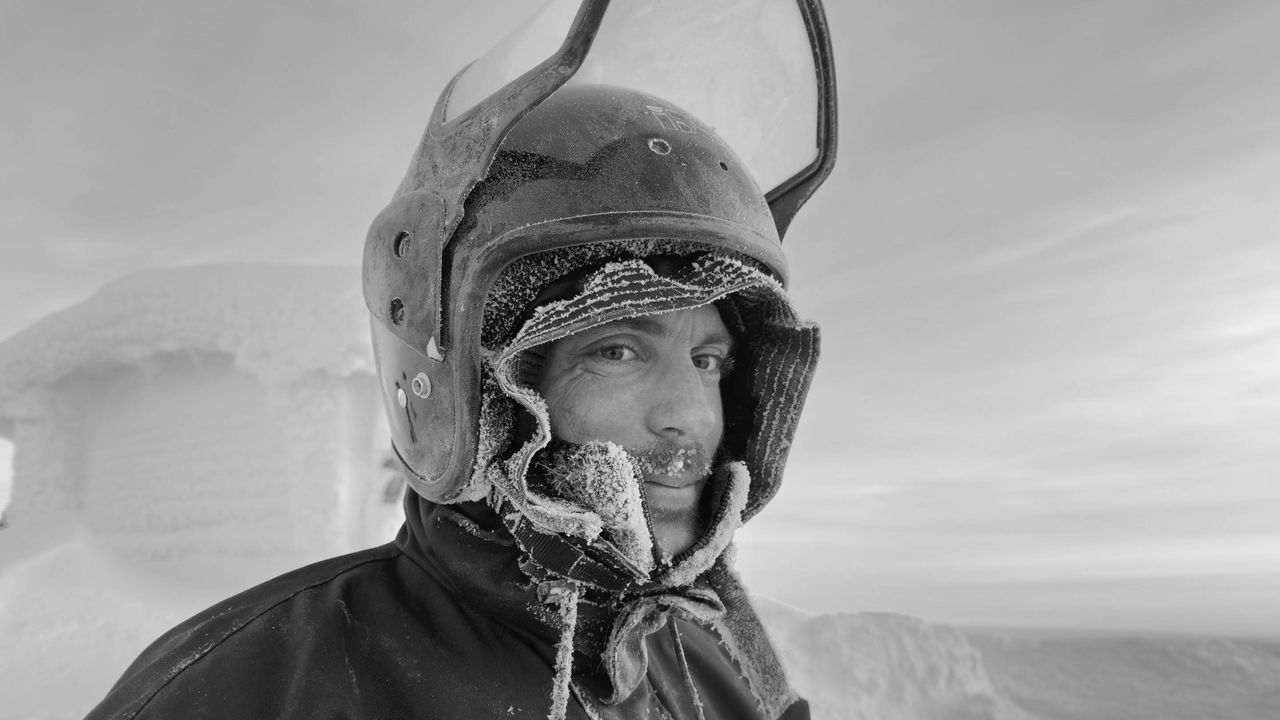“If we talk about filmmaking—instead of the reasons I made this film, the motivations behind the story, or my biography—at the end of the day it’s be
“If we talk about filmmaking—instead of the reasons I made this film, the motivations behind the story, or my biography—at the end of the day it’s because I’m interested in the language of movies and moving it forward, if only slightly. In this film, I focused on identity, and ideas about our attention and reason that I hope the audience will relate to.”
This is how Giulio Bertelli summarizes his first experience as a director, after two hours of conversation and reflection. His debut film, Agon, will be presented in Venice on August 29. There’s already much interest in this independent film, some due to the fact that 35-year-old Bertelli is the second son of Miuccia Prada and Patrizio Bertelli—though he chooses to stay out of the family business as he pursues his own interests. Filmmaking was his childhood dream, and Agon embodies everything he has learned about the art.
The film tells the story of three female athletes—specializing in judo, fencing, and shooting—as they prepare to participate in the 2024 Ludoj Games. These are a fictional Olympics for a film that is complex to categorize. At first glance, it feels like a documentary; the sports narrative has an original visual and aesthetic structure, blurring reality and fiction while exploring universal themes like competition and performance. It is a conceptual and allegorical film, “at times dreamlike and absurd,” says Bertelli. He describes it as “techno realism.”
“Maybe it won’t appeal to everyone, as I would have liked. But I have the feeling that young viewers especially will understand it,” he says. One senses that Bertelli shares the outlook of those juvenile viewers. “Maybe it’s because I don’t have a long history [in film]. I haven’t worked in cinema, and my point of view has remained that of my 20s.”
Vanity Fair: How did you come to make this film?
Giulio Bertelli: I’ve thought about making films since high school. There was a moment when I realized that there was an individual director behind a film, and that interested me more than the actors. I understood that cinema was the graphic or visual manifestation of a thought, an interpretation of the world going on around you. Then I went to study in England, at the Architectural Association, which is a more theoretical university.
I started to focus on the relationship between filmmaking, design, and architecture, but I never thought I would become an architect. At that time I had the urge to write about a lot of subjects, and then life took an unexpected turn. I had other passions as well, and I wanted to get away from an urban and maybe even an intellectual context.
So you chose the sea?
Sailboats. I was interested in working with my hands and the technological developments in a world that I was familiar with, for family reasons. It started as a hobby in my 20s and then became a professional career at the highest level for about 10 to 12 years. Not only with Luna Rossa [the Italian sailing team that has competed in America’s Cup events since 2000]. I also worked with international teams from Australia, the Netherlands, France, and Italy. I also worked with veteran sailor Giovanni Soldini. Then I opened my own research and design studio, which applied its work to different fields. I didn’t start working on this film until 2018.
I already had several scripts, and this story seemed like the best fit because it was initially supposed to be an animated film. However, when I started preliminary conversations with Mubi, we realized that animation didn’t make much sense. So I thought of creating a hybrid film—part animation and part live action.
The three different sports in the film are all related to combat, and Agon begins with a quote associating sports with war. What is the message of the quote?
It is from an 1892 manifesto by Pierre de Coubertin, a cofounder of the International Olympic Committee. When I address a topic, I investigate the connections between its historical background, its contemporary context, and its potential evolution. The 1896 Olympics opened with a shooting event—de Coubertin’s sport—which used to be simply part of army officers’ training and practice for combat. Later, it became a competitive sport. I am attracted to the relationship between sport and a certain abstraction of violence. It is only in the 20th century that the perception of what sport was meant to be changed, but it has a very clear origin, which is linked to the history of war and combat.

COMMENTS